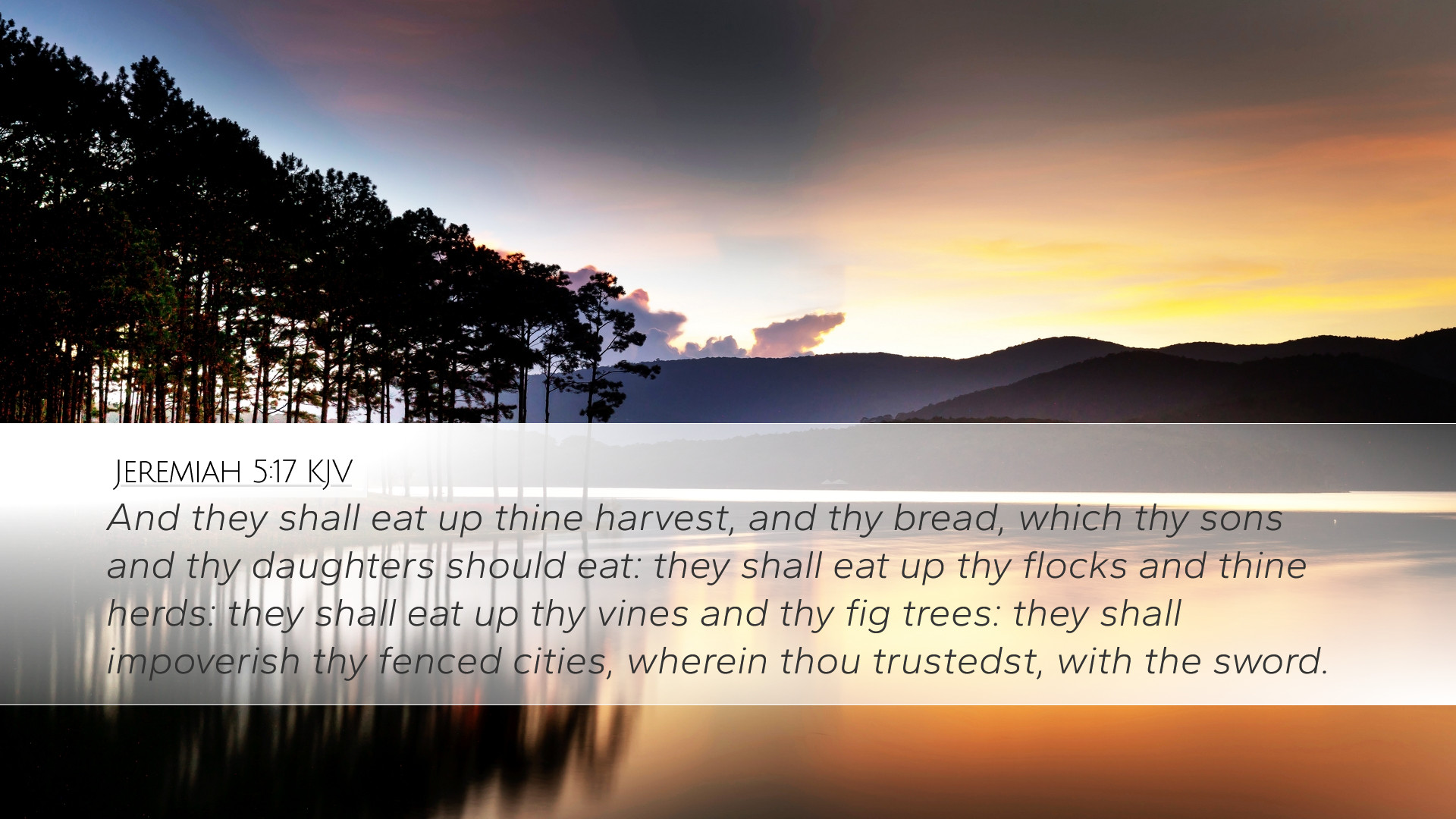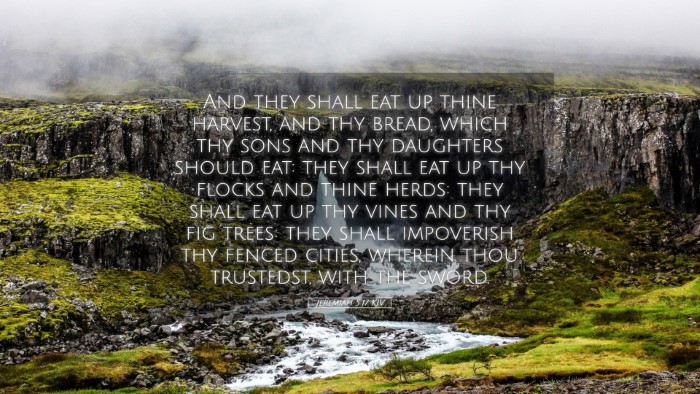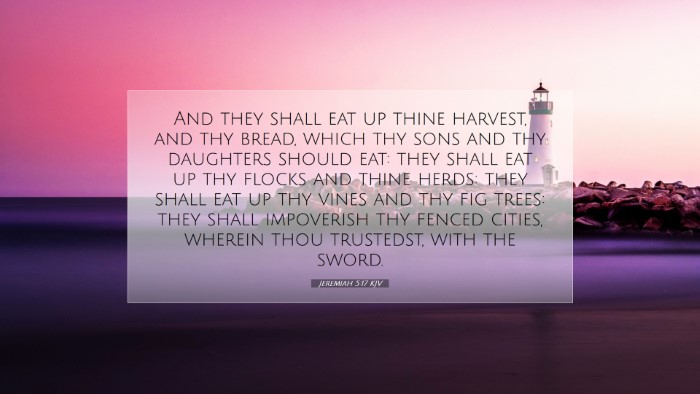Commentary on Jeremiah 5:17
Verse: "And they shall eat up your harvest, and your bread, which your sons and your daughters should eat: they shall eat up your flocks and your herds: they shall eat up your vines and your fig trees: they shall impoverish your fenced cities, wherein ye trusted, with the sword." (KJV)
Introduction
This verse from Jeremiah is a stark admonition against the unfaithfulness of the people of Judah. It encapsulates the profound consequences of their idolatry and rebellion against God. The imagery used in this verse serves to highlight the totality of the destruction that is coming upon them due to their sins.
Contextual Analysis
The opening chapters of Jeremiah depict a society in moral decay. Jeremiah is called as a prophet to warn the people of Judah of impending judgment due to their transgressions. The mention of the harvest, bread, flocks, and herds signifies the basic sustenance and prosperity that the people would lose as a result of their actions.
Historical Background
The historical context involves the Babylonian threat during the late 7th century BC. Jeremiah’s warnings are set against the backdrop of political intrigue and social injustice prevalent in Judah. The prophet communicates God’s displeasure and the coming judgment that would use foreign powers as instruments of divine retribution.
Thematic Insights
Judgment and Consequences
The theme of judgment is front and center in this verse. Adam Clarke, in his commentary, emphasizes that the invading forces represent not merely physical destruction but also God’s judgment on a wayward nation that has forsaken Him. The "harvest," "flocks," and "herds" symbolize the very things that the people depended on for survival, signifying a holistic ruin.
God's Provision versus Human Apostasy
Matthew Henry notes that God continuously provided for His people, yet their persistent rebellion led to a tragic irony where the fruits of their labor are consumed by their enemies. This serves as a reminder of the fleeting nature of human success when based on disobedience to divine principles.
Detailed Exegesis
Each component in the verse warrants careful examination. The phrase "they shall eat up your harvest" signifies a complete depletion of resources, reflecting not just physical starvation but spiritual barrenness as well. The use of "sons and daughters" illustrates the generational impact of judgment. Not only do the current inhabitants of Judah face calamity, but their offspring also suffer the consequences of their idolatry and moral failures.
Imagery of Consumption
The repeated phrase, "they shall eat," evokes a strong visceral response, indicating an overwhelming and insatiable enemy. Albert Barnes elucidates that such imagery represents both the voracious nature of the impending invaders and the complete destitution faced by the people of Judah.
Impacts on Society
The figurative language used by Jeremiah conveys a societal collapse. The destruction of vines and fig trees signifies the loss of agricultural stability, which was a crucial aspect of ancient Judaic life. The devastation is not just physical but also social and spiritual, leading to a breakdown of community and trust.
Theological Reflections
This verse brings forward significant theological discussions related to divine justice and human accountability. The sovereignty of God is highlighted as He raises an army to enact judgment, showcasing God’s ultimate authority over nations and affairs of humanity.
God's Faithfulness
Despite the grim warnings, there remains an underlying theme of God’s faithfulness to His covenant. Yet, as noted by Clarke, the covenant blessings come with conditions that the people have blatantly violated. Their unfaithfulness necessitates a response of justice.
Lessons for Today
For modern audiences, the implications of Jeremiah 5:17 extend beyond ancient Israel. The cautionary tale of Judah serves as a reminder for contemporary societies about the relevance of personal and corporate fidelity to God. Pastors and theologians can draw parallels to current moral and spiritual crises, urging a return to authentic faith and reliance on God’s provision.
Conclusion
Jeremiah 5:17 stands as a powerful reminder of the gravity of disobedience. The consequences outlined in this verse are both a historical reality for Judah and a timeless lesson for believers today. As communities of faith grapple with their own challenges, this verse calls for introspection concerning the covenant relationship with God and fidelity to His commands.


